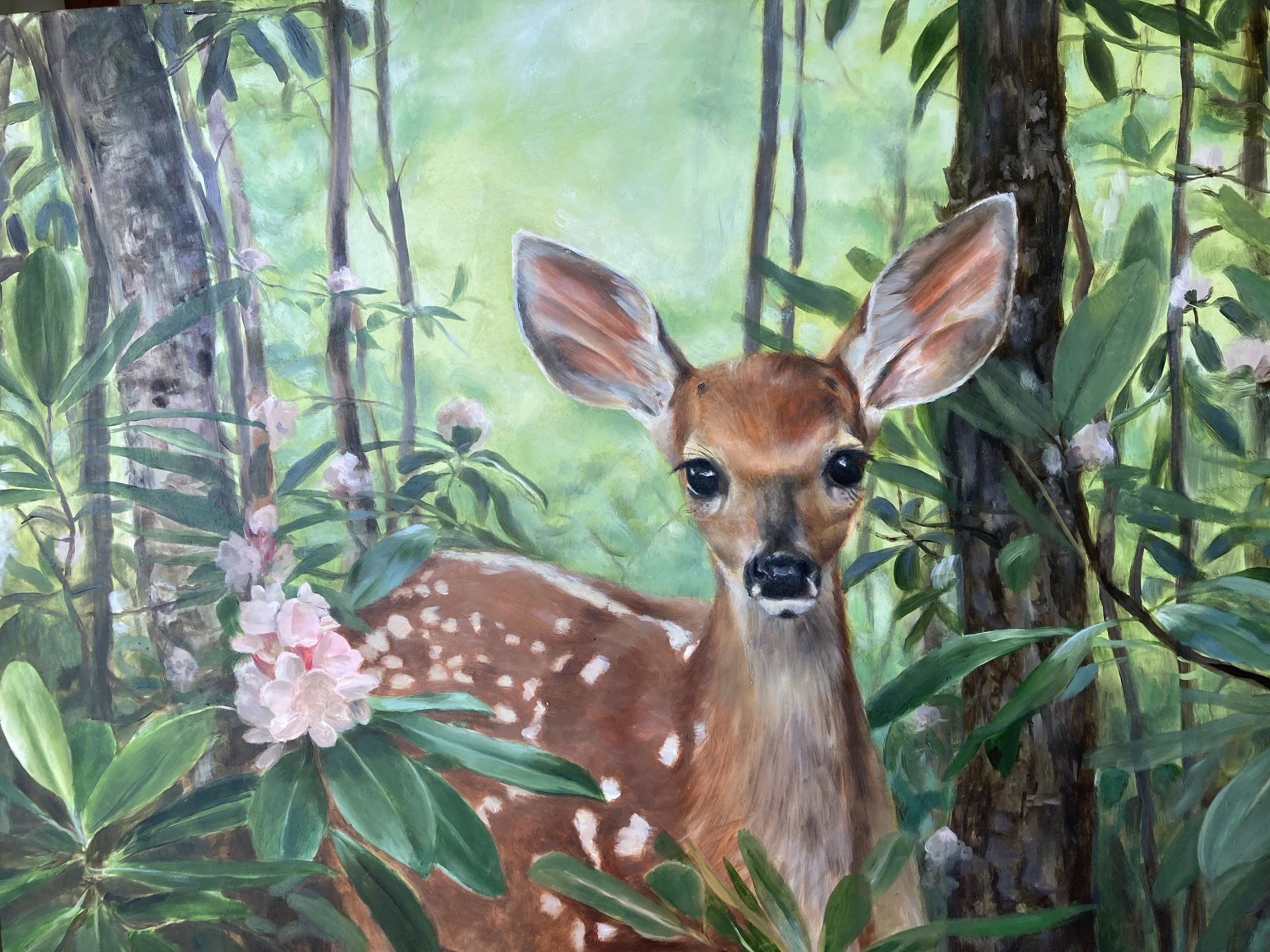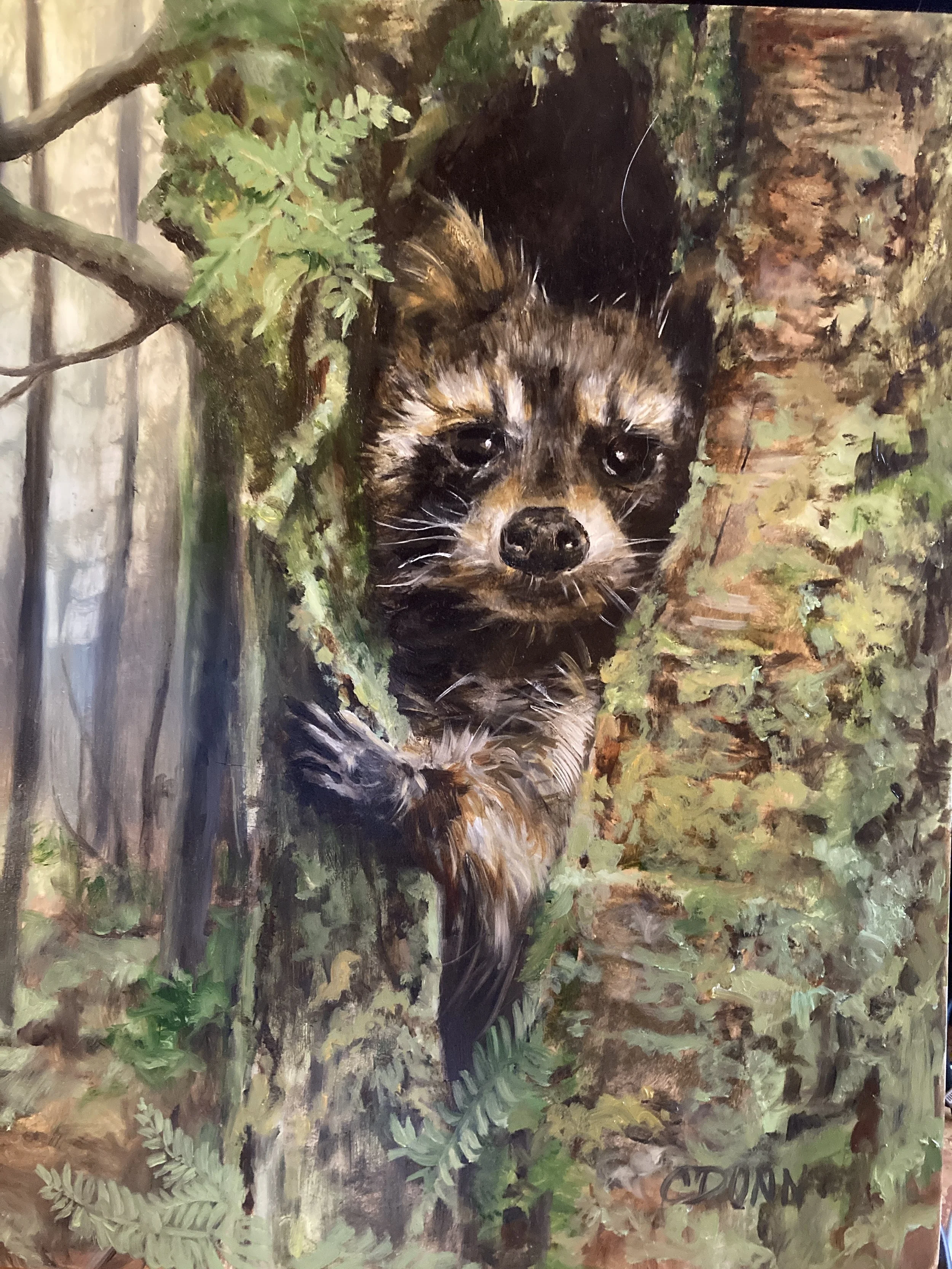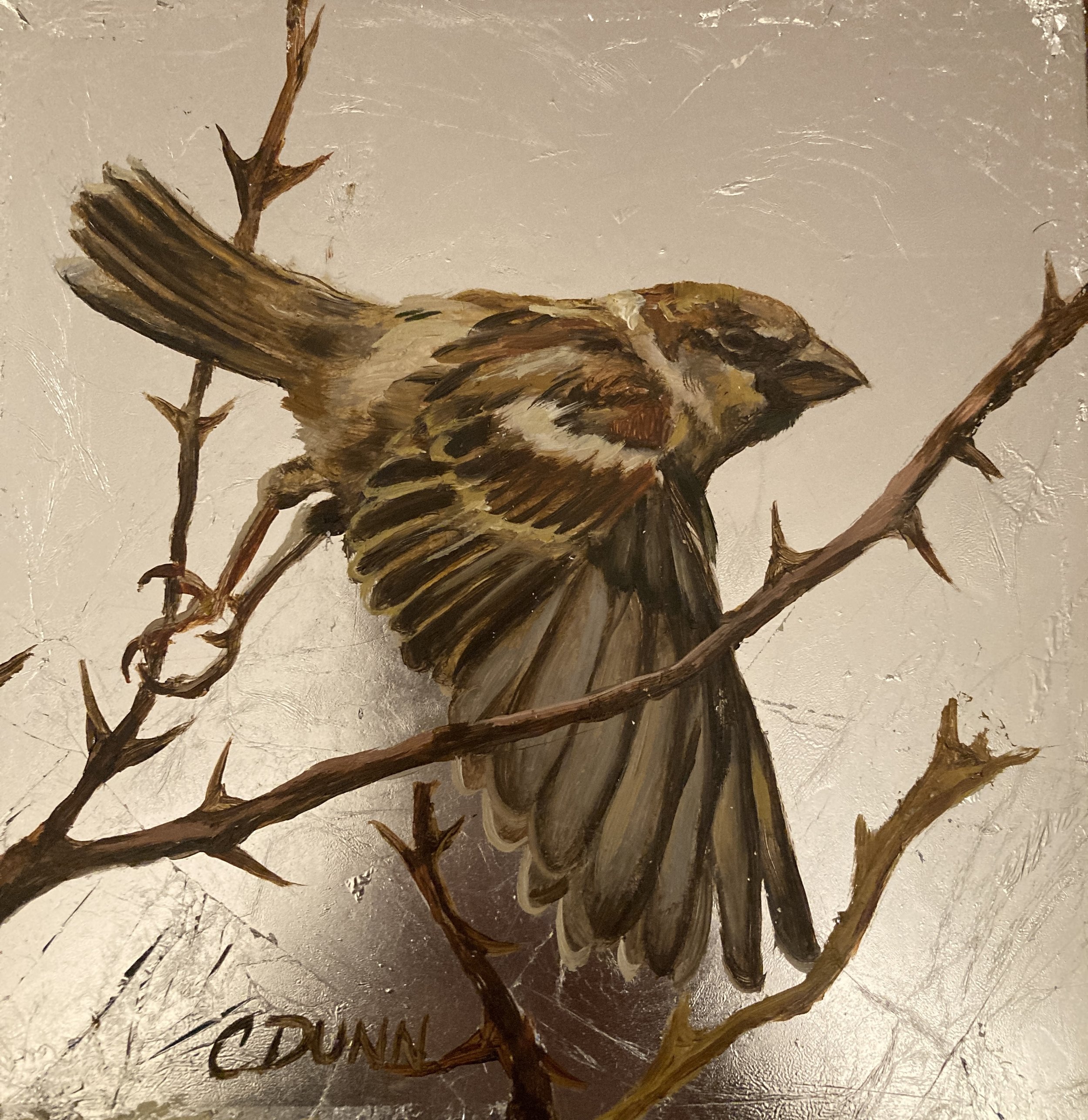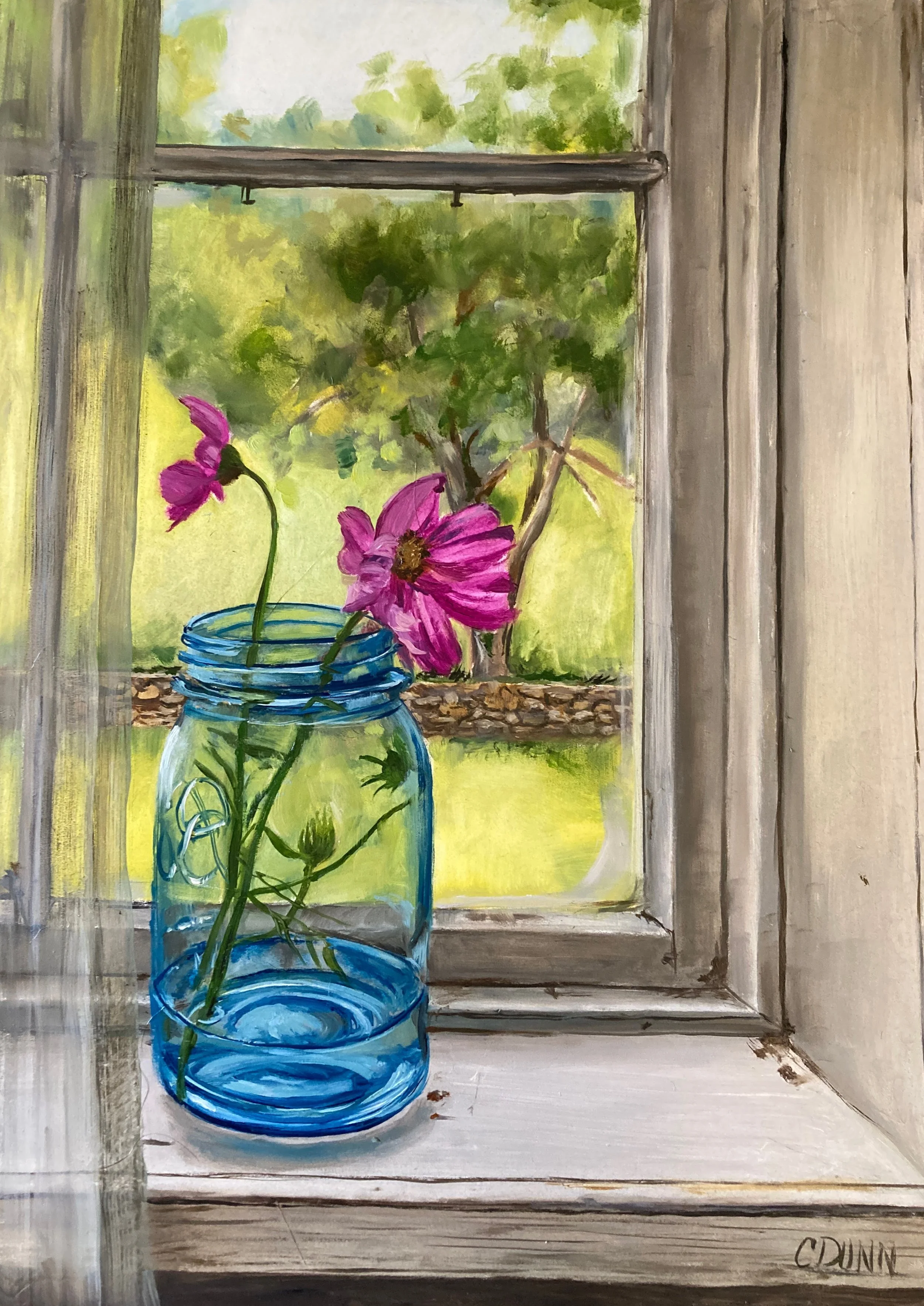
The Physical and Cultural Links between
Appalachia and Celtic Britain
Follow along as this coffee table book is
written by Sharyn McCrumb and illustrated by Cristy Dunn

Meeting the Boat
In fairness to my neighbor Bill, and my other neighbors, the honeybees, I should note that the rest of us human beings have not been in North America more than a few thousand years, which in geologic time is less than a heartbeat. Our species is not native to this continent. We all came from somewhere else. Whether your ancestors arrived by ship, like mine did, or walked across a land bridge from Siberia, all humans here are newcomers. If you want to give the land back to its rightful owners, hand your house keys over to a raccoon and hop on a plane, because raccoons did originate here, and they probably watched from under a bush as the ships anchored in the harbor off Jamestown.
“O see ye not yon narrow road So thick beset wi’ thorns and briars? That is the path of righteousness Tho’ after it but few enquires. eaven. And see not ye that bonny road Which winds about the fernie brae? That is the road to fair Elfland Where you and I this hight maun gae -True Thomas - Child Ballad #37
“O see ye not yon narrow road So thick beset wi’ thorns and briars? That is the path of righteousness Tho’ after it but few enquires. eaven. And see not ye that bonny road Which winds about the fernie brae? That is the road to fair Elfland Where you and I this hight maun gae -True Thomas - Child Ballad #37

Newcomers
…From the window of my study I look out on a sunny back garden, bounded by a steep wooded hill on the north, and the spine of a long ridge of mountains to the south. An apple tree, now in flower, grows alongside the limestone wall in one corner of the garden, and honeybees hover among its blossoms.The place seems as anchored in eternity as the sky above it, but that's only because the things here have endured longer than living memory.
You don't have to go back very far to find newcomers that are now mistaken for original inhabitants.That old apple tree in the garden is one of them. Apples are not native to North America.They came here the same way my ancestors did-- on the deck of an English sailing ship. A couple of hundred years later, you hear people say, "As American as apple pie," because the origin of apples has mostly been forgotten.The honeybees buzzing around the apple blossoms are also strangers in a strange land.They, too, came over from Europe with the colonists, because they were more useful than the native pollinators, the wasps and yellow jackets, whose products were inferior to the abundant honey available from apis mellifera.
Reserve Your Copy
Be the First to get a copy of the new book



